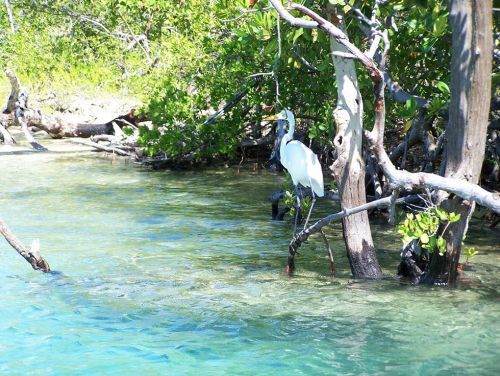Celebrating the Importance of Estuaries
When the fresh waters of rivers meets the salty waters of the ocean a diverse habitat called estuaries form.
Here at NOAA’s Office of Response and Restoration we often find ourselves working in estuaries, trying to minimize the impacts of oil spills and hazardous waste sites on these important habitats and National Estuaries Week is this week.
Celebrating National Estuaries Week
Sept. 16-24, 2017 is the week we celebrate these critical habitats, Restore America’s Estuaries member organizations, NOAA’s National Estuarine Research Reserve System, and EPA’s National Estuary Program, are organizing special events such as beach cleanups, hikes, canoe and kayak trips, cruises, and workshops across the nation.
Why you should care about estuaries
Estuaries are incredibly diverse and productive ecosystems. Learn more and then help spread the word about why estuaries matter. For example, estuaries:
- Are vital temporary homes for migratory species, such as mallards and striped bass.
- Provide critical nesting and feeding habitat for a variety of aquatic plants and animals, including shrimp, oysters, and other commercial seafood.
- Help prevent coastal erosion.
- Filter harmful pollutants washing off the land.
- Reduce flooding during storms.
- Are important recreational and tourist destinations.
- Are crucial to our future and the health of the ocean.
You and your family and friends can take a personal stake in looking out for the health and well-being of estuaries by doing these simple things to protect these fragile ecosystems.
How We Are Protecting and Restoring Estuaries
Take a closer look at some of our work on marine pollution in these important estuaries.
Chesapeake Bay: NOAA has been working with the U.S. Environmental Protection Agency and Department of Defense on cleaning up and restoring a number of contaminated military facilities around the Chesapeake Bay. Because these Superfund sites are on federal property, we had to take a slightly different approach than usual and tried to work restoration principles into the cleanup process as early as possible.
Delaware Bay: Our office has responded to a number of oil spills in and adjacent to Delaware Bay, including the Athos I oil spill on the Delaware River in 2004. As a result, we are working on implementing several restoration projects around the Delaware Bay, which range from creating oyster reefs to restoring marshes, meadows, and grasslands.
Puget Sound: For Commencement Bay, many of the waterways leading into it—which provide habitat for salmon, steelhead, and other fish—have been polluted by industrial and commercial activities in this harbor from Tacoma, Washington. NOAA and other federal, state, and tribal partners have been working for decades to address the contamination and restore damaged habitat.
Further north in Puget Sound, NOAA and our partners have worked with the airplane manufacturer Boeing to restore habitat for fish, shorebirds, and wildlife harmed by historical industrial activities on the Lower Duwamish River, a heavily used urban river in Seattle. Young Puget Sound Chinook salmon and Steelhead have to spend time in this part of the river, which is a Superfund Site, as they transition from the river’s freshwater to the saltwater of the Puget Sound. Creating more welcoming habitat for these fish gives them places to find food and escape from predators.
San Francisco Bay: In 2007 the M/V Cosco Busan crashed into the Bay Bridge and spilled 53,000 gallons of thick fuel oil into California’s San Francisco Bay. Our response staff conducted aerial surveys of the oil, modeled the path of the spill, and assessed the impacts to the shoreline. Working with our partners, we also evaluated the impacts to fish, wildlife, and habitats, and determined the amount of restoration needed to make up for the oil spill. We are currently using special buoys to plant eelgrass in the Bay as one of the spill’s restoration projects. You can read more updates here.
Check back next week, Monday, Sept. 18 for more information about our work with estuaries!
 An official website of the United States government.
An official website of the United States government. 
